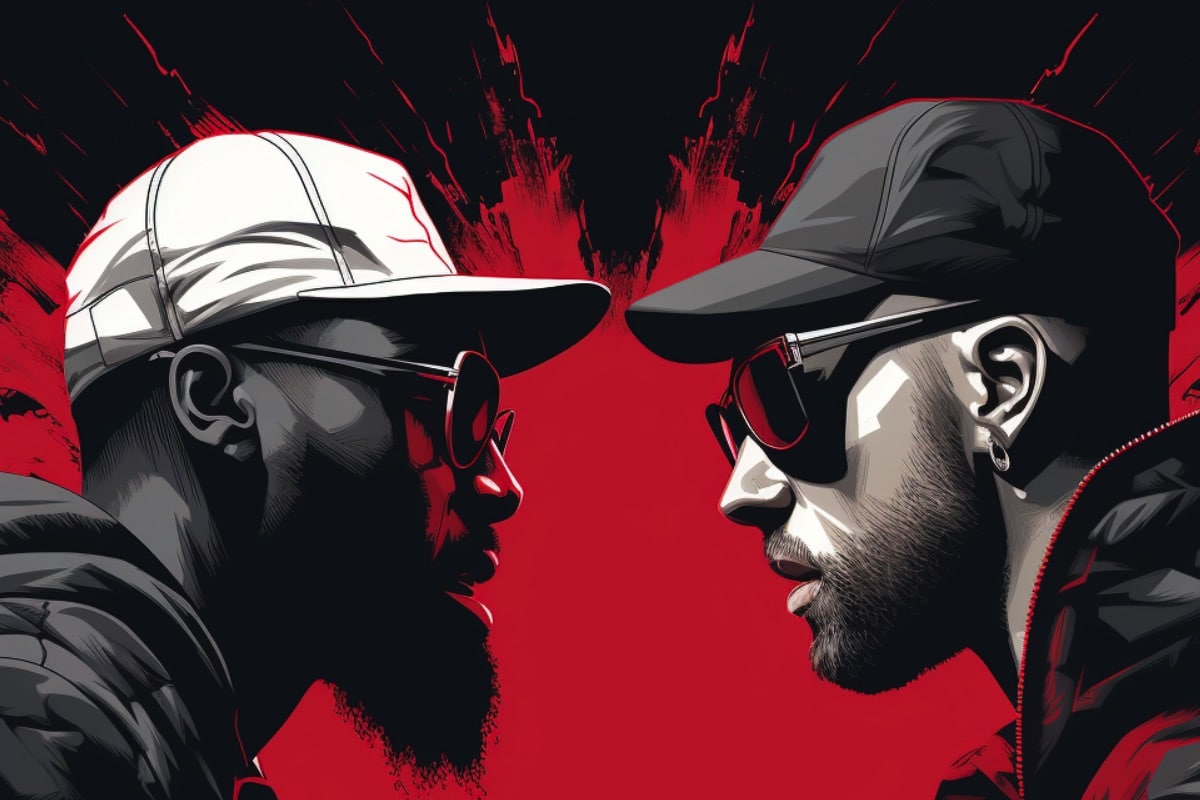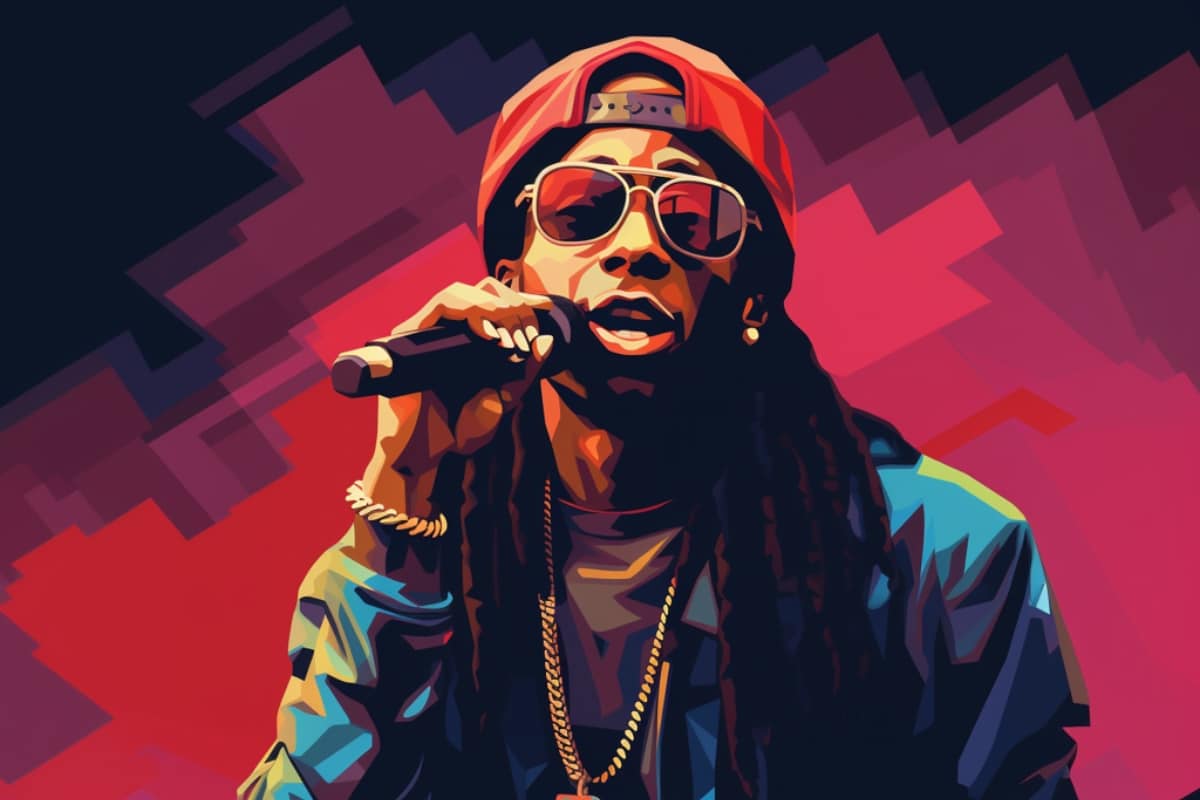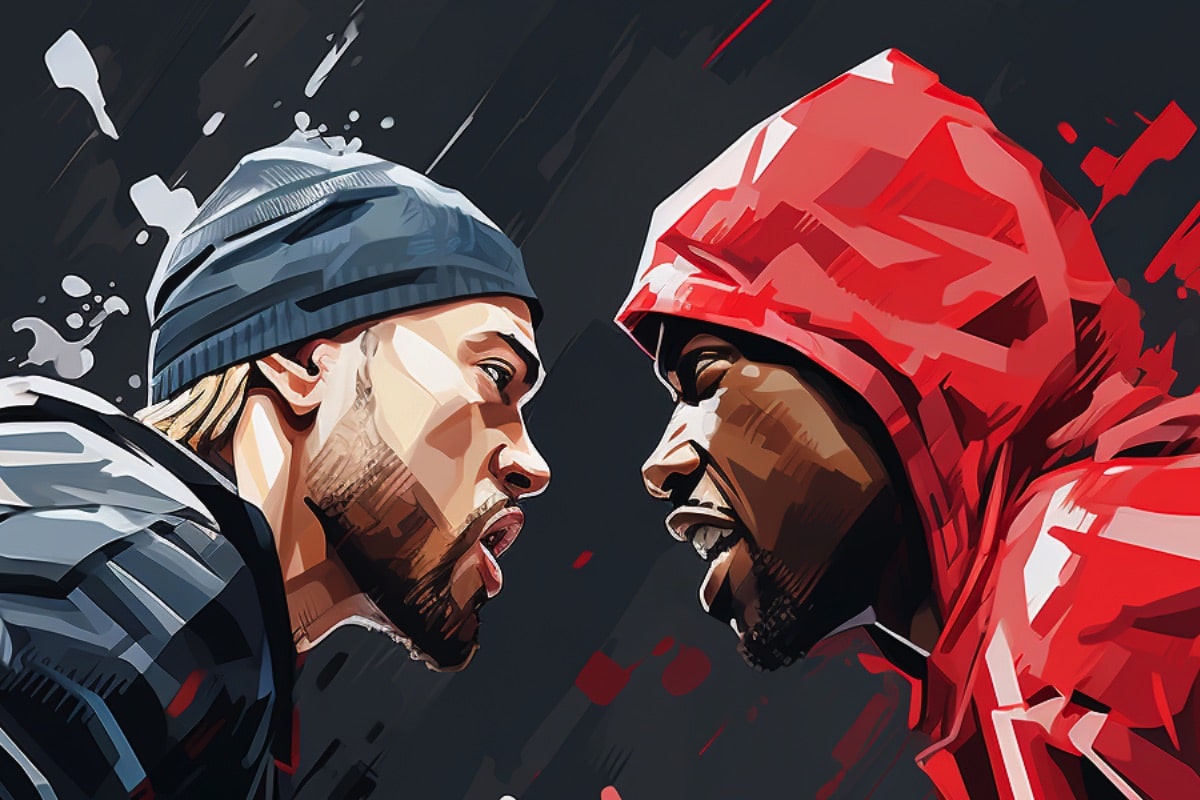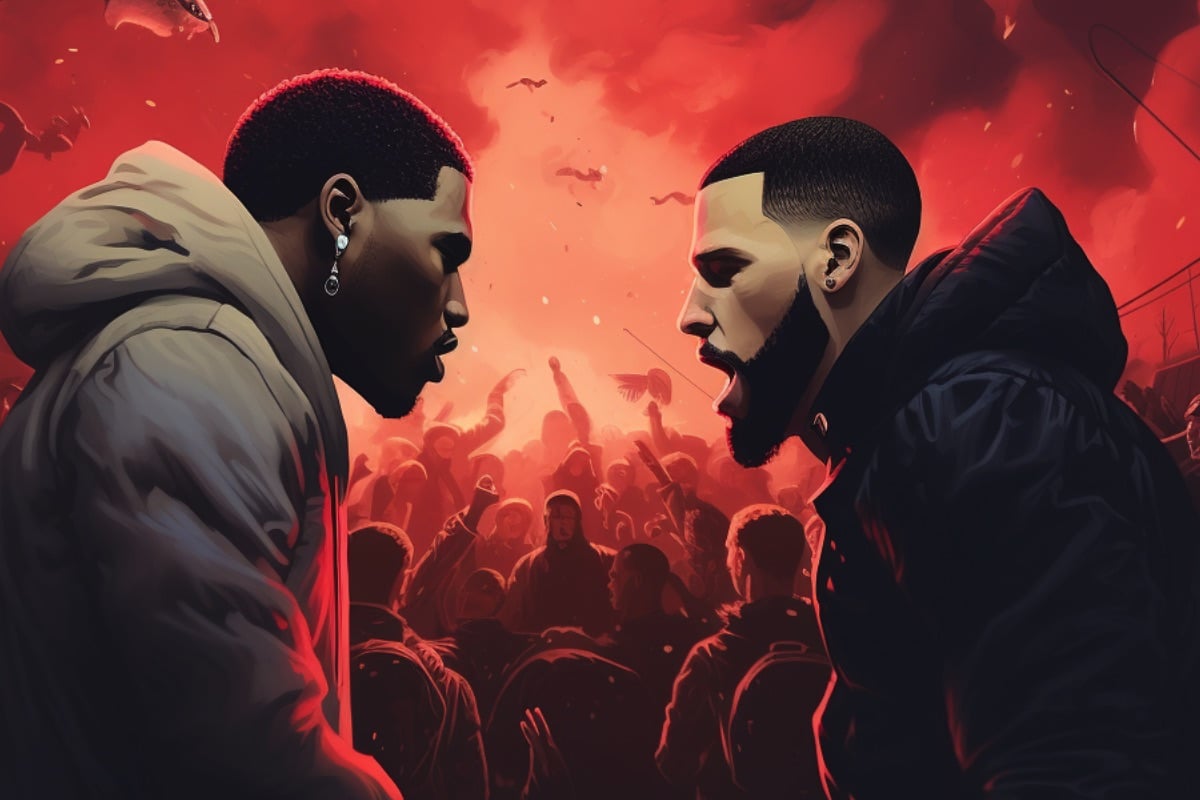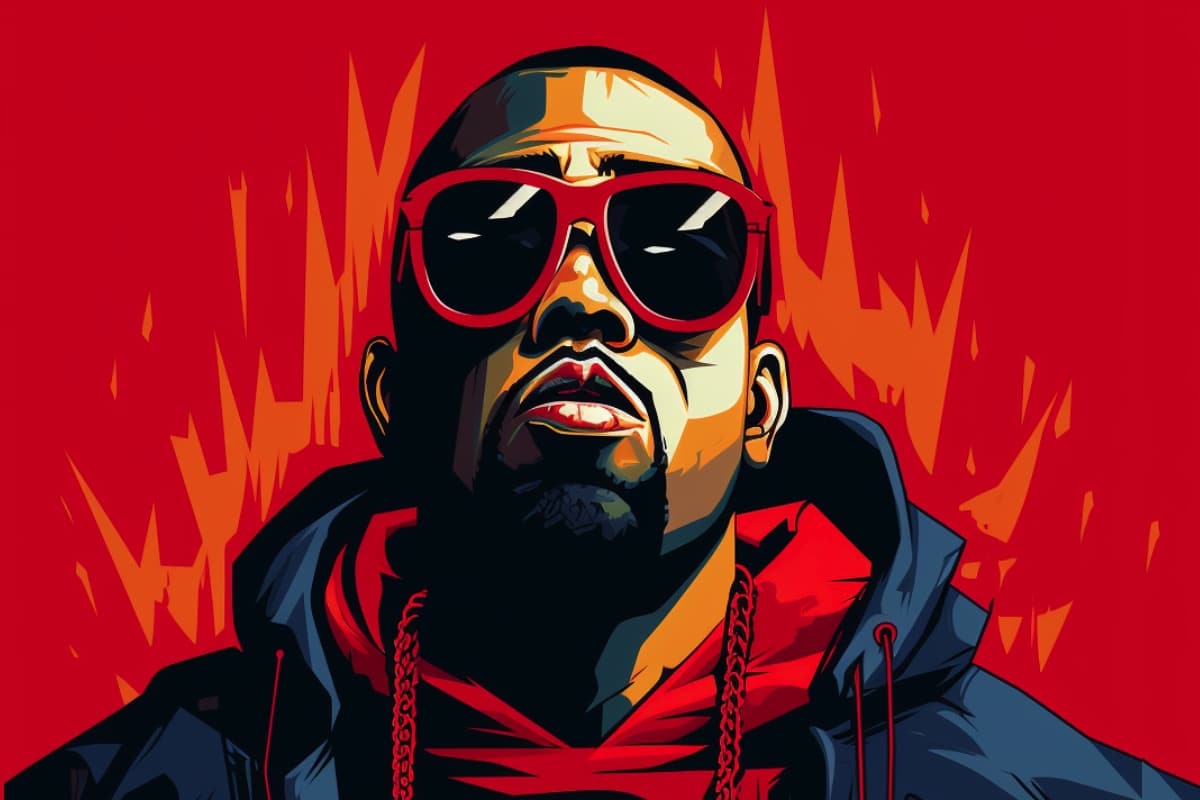In this fiftieth anniversary year of hip-hop, there has been a whole lot of talk about rappers. But there has been less talk about what makes rappers great. There are plenty of qualities that make rappers notable. Some, like having a unique and notable voice, or a memorable look, have nothing to do with rapping ability. But there are also a number of musical and lyrical aspects of a rapper’s style that are often subsumed under the term “lyricism.”
Lyricism is a catch-all phrase for many different aspects of a rapper’s performance. Among the batch:
- Placement of rhymes: Do all of your rhymes appear in predictable places, such as at the end of a phrase? Or do you keep the listener’s interest by varying the placement?
- Types of rhymes: Do you rhyme only predictable words? Or do you connect unusual words or ideas with your rhymes?
- Vocabulary: Do you use a large variety of words? Do you use words in new or innovative ways?
- Phrasing: Commonly referred to as “flow,” phrasing refers to the rapper’s use of rhythm. Rappers use rhythm in two ways. First, there’s the relationship of their rapping to the beat—are they behind the beat, right on it, rushing ahead? Then, there’s the rhythmic choices they make to deliver their lyrics.
- Wordplay: How does the rapper use puns, jokes, allusions, and references?
- Storytelling: Can the rapper craft a coherent, detailed, captivating narrative?
This is by no means an exhaustive list, but it gives an idea of what is on the table when we discuss a rapper’s lyricism. And this list gives us a good idea of what to examine when trying to figure out which of two rappers is a better lyricist.
To find out exactly how these criteria work, and what else we need to look at when determining which lyricist reigns supreme, it’s helpful to compare two of the top lyricists of the past quarter century, Eminem and Black Thought.
As I mentioned in a recent piece elsewhere, Eminem’s career is unprecedented. He is the best-selling rapper of all time, and was the best selling artist of any type for the first decade of this century. No small part of that success is due to his absolutely extraordinary skills as a lyricist. Nearly all of his peers—and his influences—have acknowledged this in one way or another. This includes Marshall Mathers’ biggest influence, Treach of Naughty by Nature, who just this past summer said that Em is “one of the dopest MC’s to touch the mic ever in history.”
Tariq “Black Thought” Trotter has had a longer road to being generally recognized as one of rap’s all-time greats. In the first place, he is a member of a band—the Roots—where the most public-facing figure is not the front person. Instead, it’s the group’s charismatic drummer, Questlove. Quest is the one who, during the band’s hard-touring early years, did things like starting popular websites and writing the group’s extensive liner notes. Now, two-plus decades on, he has become a pop culture phenomenon unto himself: writing books, hosting podcasts, directing Oscar-winning documentaries, executive producing Broadway shows, and more, all while still appearing on television constantly with the rest of the Roots as the band for The Tonight Show Starring Jimmy Fallon. In fact, Thought was not even the group’s only rapper for much of its early career. He shared microphone duties with Malik B up through 1999’s Things Fall Apart.
Recently, Thought has begun to be in the public eye more. He’s been more open in interviews, has released solo projects, and has even starred in an Off-Broadway musical of his own. As he’s done all of this, his public esteem has risen—supercharged by an incredible 2017 Funk Flex freestyle that stopped all of hip-hop in its tracks.
But long before his recent run, rap fans have known Black Thought was among the elite. If nothing else, you could tell that he was by the fact he went toe-to-toe with one of the greatest of them all, Big Pun, on the appropriately-titled “Super Lyrical.” Comparing Black Thought and Eminem brings to light so much of what makes top-tier rappers the lyrical beasts that they are.
Eminem began attracting local attention around his native Detroit as early as his 1996 release Infinite. But it wasn’t until he teamed up with Dr. Dre to release The Slim Shady LP in 1999 that the wider world took notice of the white rapper with dazzling rhymes and a seemingly limitless amount of alter egos.
The album was a pop culture sensation, and led to a number of controversies. Em put that feeling of being in the world’s headlights into his follow-up, The Marshall Mathers LP. That record, which contained classics like “Stan” and “The Way I Am,” cemented his place at the top of the rap world. His third album, The Eminem Show, was another huge critical and commercial success, and found the rapper developing a burgeoning political consciousness as well.
Since then, Em’s output has slowed down. He has released albums more sporadically, sometimes every year, but more often going three or four years between projects. Some of his most interesting work has come on side projects, such as the 2011 Hell: The Sequel EP from his duo project with Royce da 5’9”, Bad Meets Evil.
Eminem’s rap style had antecedents, of course—he named a long (and alphabetical) list of his influences when he was inducted into the Rock and Roll Hall of Fame in 2022. But he formed those influences into something completely new. His breakthrough came when he started using shocking, outrageous subject matter and delivered it in a humorous way, using a new voice.
“I didn’t want to say crazy things just to say them,” he writes in his 2008 book The Way I Am. “If I was going to do it, I had to display some lyrical skill with it too. It had to be some kind of lyrical acrobatics, syllables had to connect, and it had to make sense.”
You can find all of that throughout Eminem’s catalog. There are the crazy things, of course, some of which would lead to protests. And there was also no shortage of lyrical acrobatics.
Eminem is a master of the internal rhyme, piling similar-sounding syllables together into a dizzying tower in nearly every song. He leans heavily on assonance (the repetition of similar vowel sounds). Look at the mindblowing use of ah (italicized) and short “i” (bolded) sounds in this short excerpt from “Business,” chosen by this author more or less at random: “Looks like Batman’s got his own Robin / Oh God, Saddam’s got his own Laden.”
Eminem does not dive into straight narrative all that much. But when he does, he’s a master. One of his story songs, “Stan,” became so well-known (despite being nearly seven minutes long) that it introduced a whole new term into the English language. That’s because the song paints such a captivating, detailed picture of an obsessive fan who knows everything about the artist he loves, down to the names of his family members and hard-to-find underground songs, and who carries his fascination all the way to a devastating murder-suicide.
From the release of his first album, Eminem was hailed almost universally as a great rhymer. So it came as somewhat of a surprise to fans and critics when he developed a new aspect of his style well over a decade into his career. On the 2011 EP Hell: The Sequel with his frequent rhyme partner Royce, Eminem introduced a punny wordplay and use of double meanings that became a staple of the second half of his career.
Black Thought was a lyrical monster from the beginning. You can hear it on the intro of their 1993 debut. “I rip the vocal backflip, yo the kid is a bad bro / I could drip it hip and then dip into calypso” is the opening couplet, and he doesn’t look back from there.
The Roots built a devoted fan base through near-constant touring—touring which only heightened Black Thought’s rapping prowess, since he was performing hundreds of shows a year.
The group had some mainstream breakthroughs over the years, most notably with their Grammy-winning ballad “You Got Me.” They made ambitious albums, based around things like African novels, mathematical models, and Malcolm Gladwell books. But because of both Questlove’s outsized public persona and Black Thought’s traditionalist approach of rapping mostly about the art of rapping itself, Thought stayed somewhat below the radar.
National television exposure on The Tonight Show changed all that. Suddenly the entire country could see what Roots fans had always known: that Thought was an unbeatable rhymer (particularly when it comes to freestyles) and performer.
As mentioned above, Black Thought’s primary subject for much of his career has been how great an emcee he is. His performances consistently back up his boasting. His rhythmic choices are inventive. He thinks like a composer, moving from one grouping to the next with an ear to what came before, and what’s going to come next. He combines this with an incredibly creative use of rhymes, placing them in different locations in order to surprise the listener and advance his musical ideas.
Undoubtedly, much of this skill comes from study. He does pitch-perfect imitations of Big Daddy Kane and Kool G. Rap on “BOOM!” and the ability to both write and perform in their style must have come only from intense listening and thinking about both artists.
One of the greatest things about Black Thought is the way he bends language to his will. He’ll intentionally mispronounce words, or sometimes invent them, in order to make them rhyme.
“Re-introducing natural thespian,” he rhymes on 2002’s “Thought @ Work,” pronouncing the last word as “thess-PEE-in” to rhyme with what comes next. “Hotel-ing-est, illin’-est emceein’ / Fuck getting money for real, get freedom.” “Hoteling-est” and “illin’-est” don’t appear in any dictionaries, but they should. This bending of words occurs throughout his catalog, often in funny and surprising ways, as on 2004’s “Web”: “Y’all better bow down when the ruler come / I’m a real hood n*gga, not a hood-uh-lum.”
Thought finds countless creative ways to boast about how great he is. And in his more recent tracks, he’s been expanding his subject matter as well, becoming more reflective and autobiographical. This goes along with the political observations that have long been a part of his lyrics, most notably on the 2006 masterpiece Game Theory.
One of the greatest aspects of Thought’s style is that he seems to have a literally endless stream of ideas. You can never tell what’s going to come out of his mouth next, but you know that it’s going to be surprising and clever. This stream-of-great-ideas quality reached its apex in the aforementioned Funk Flex freestyle, which was almost eleven straight minutes of rhyming. He went from dick jokes (“I see intruders, avert your eyes / I told you keep out of the hood—circumcised” to introspection (“Them brothers said, don’t go from written bars filled with rage / To prime-time television, in your gilded cage / Then forget there’s people in the world still enslaved”) to an extended comparison of his skills to those of the greatest rappers of all time (“Maybe I’m the new Rakim, maybe I’m fat Pharoahe / Undergarments of armor be my intimate apparel / Pre-Kardashian Kanye, my rhymeplay immaculate / Same cadence as D.O.C. pre-accident”)—and that’s just in the first two and a half minutes.
It’s difficult to compare Black Thought and Eminem. They are both rightfully hailed among the all-timers, and both are still performing at a high level. Both of their talents are unique enough that they haven’t had an influence on future generations that is equivalent to their talent. This could be because it’s extremely difficult, if not impossible, to emulate what they do well.
Eminem had a giant cultural impact, and his biopic did a lot for popular acceptance of battle rap. Black Thought brought lyricism and freestyling to America’s televisions, while managing a career of music that stayed relevant and creative—even when he occasionally had to step outside of the Roots fold to do it, as on his collaborations with producers like Salaam Remi and Danger Mouse.
Their weaknesses are minimal. But Eminem, especially in recent years, has discovered a fondness for groan-worthy puns. In addition, his boundary-pushing offensiveness, which felt new two decades ago, has aged into something that feels out of date and out of step with a culture whose mores have changed.
Black Thought, by waiting so long to reveal his personal story, perhaps kept some fans at bay early in his career who might have wanted something besides rapping-about-rapping mixed with high-concept work.
All of that said, if we have to choose between the two (and we do, since that’s the whole point of this exercise), it’s clear that Black Thought takes the crown as the better lyricist. While Em’s technical prowess and storytelling are undeniably top-tier, Black Thought’s body of work exhibits a level of consciousness, depth, and sophistication that is unmatched. His verses keep you listening, for both musicality and content, and offer continual surprises. Now all that’s left is hope for more collaborations. Make it happen, guys!
